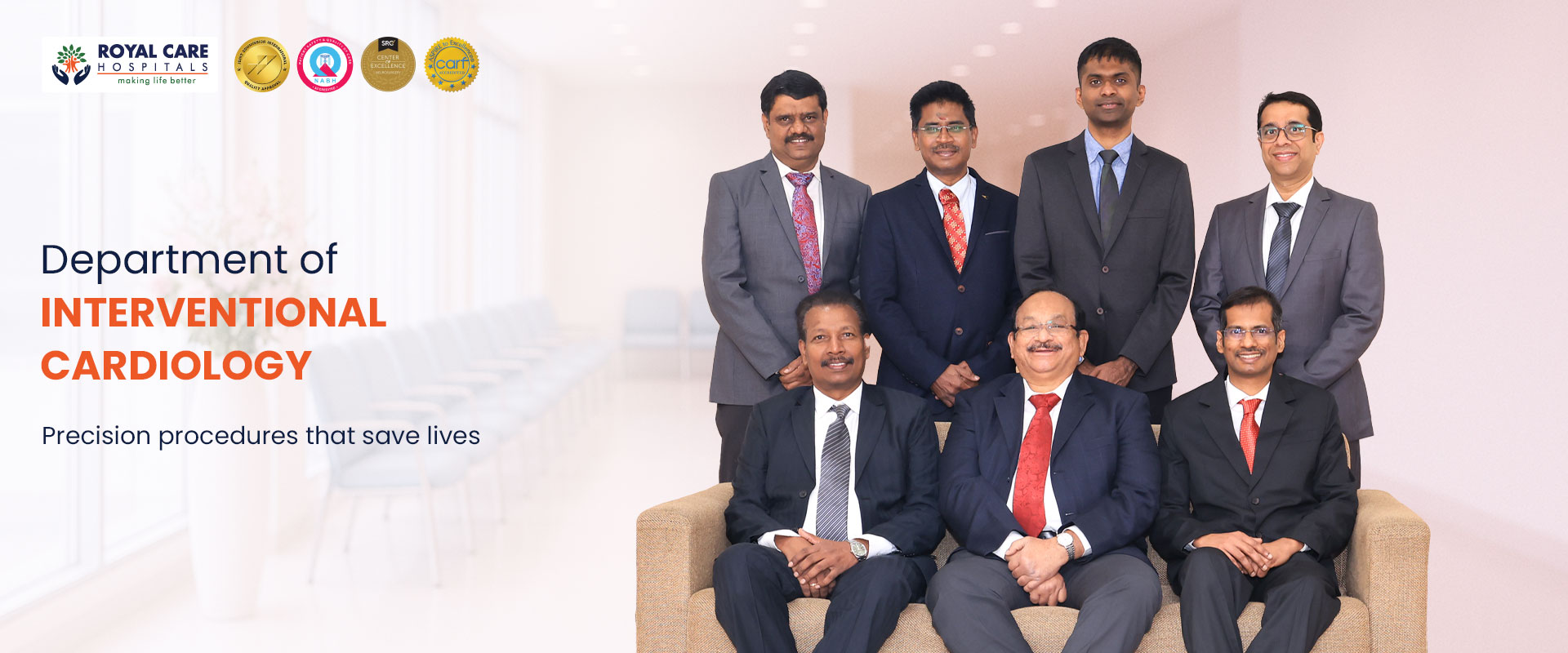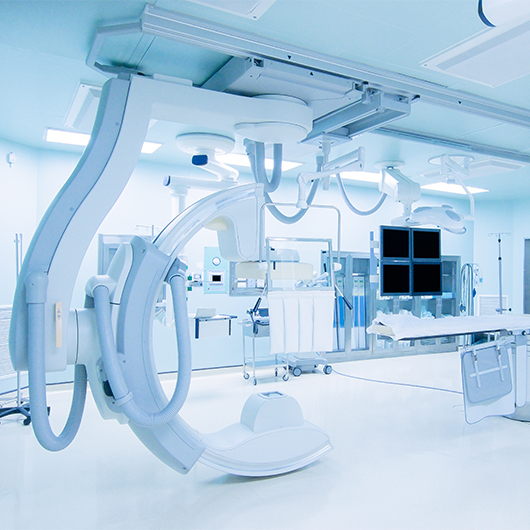Interventional Cardiology
When seconds matter, expertise and technology must work in perfect harmony. At Royal Care Super Speciality Hospital, our Interventional Cardiology department delivers swift, minimally invasive solutions for a wide spectrum of cardiac conditions, often saving lives in critical moments.
Interventional cardiology focuses on catheter-based procedures to diagnose and treat heart diseases without the need for open-heart surgery. Our state-of-the-art catheterization labs operate round-the-clock, offering procedures such as coronary angioplasty, stenting, pacemaker insertion, and device closures, all guided by high-definition imaging and precision tools.
What sets us apart is not just our infrastructure, but the skill and dedication of our team. With deep experience in handling complex and high-risk cases, our interventional cardiologists deliver optimal outcomes, even in acute emergencies like myocardial infarctions. Whether it’s managing blocked arteries or restoring rhythm to a faltering heart, we are committed to restoring cardiovascular health with accuracy and compassion.




